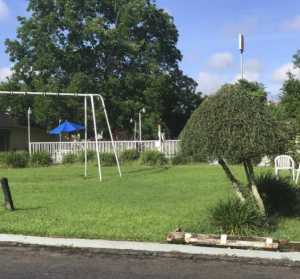
(Valdosta Daily Times)
A 5-year-old boy tragically drowned during a pool party at the Quality Inn Sunday evening, July 1, 2018. Police told the Valdosta Daily Times a local family was staying at the “Quality Inn…on West Hill Avenue” for a birthday party. The young boy was discovered “unresponsive…near the bottom of the pool.” Sadly, emergency responders were unable to revive him.
The heart-breaking loss serves as a grave reminder to Georgia hotel owners and managers to provide a safe and secure pool area, particularly for their youngest guests.
Hotel Water Safety Questions:
- Is the swimming pool area completely enclosed? If so, is all fencing at least four feet tall with self-closing and self-latching gates? Are there any gaps in the fencing
- Is a certified life-guard on duty? Has property staff been trained in CPR, first aid and emergency response?
- Are all pool filters and drains up to date with pressure-venting mechanisms designed to reduce risk of entrapment?
- Are pool rules and occupancy limits clearly posted? How does property management monitor and enforce these pool rules?
- Are waters treated and tested daily in accordance with health codes?
Victims of Hotel Swimming Pool Safety Negligence: Know Your Rights
By law, Georgia hotel owners are required to protect all guests legally on the premises from any foreseeable harm. Should they fail in this critical responsibility, the property owner may be held civilly liable for any injuries or deaths which occur as a consequence.
We Fight for Victims of Hotel Safety and Security Negligence in Georgia…Contact us Now for a Free Consultation.
 The Murray Law Firm has recovered millions of dollars for victims of unsafe properties in Georgia, and recently obtained a $29.25 million dollar verdict for one of our Clients in Fulton County State Court.
The Murray Law Firm has recovered millions of dollars for victims of unsafe properties in Georgia, and recently obtained a $29.25 million dollar verdict for one of our Clients in Fulton County State Court.
We represent our Clients on a contingency agreement, which generally means that no fees or payments are owed until and unless we recover. Anyone seeking further information or legal representation is encouraged to contact us at 888.842.1616. Consultations are free and confidential.
Choosing the Right Attorney
Selecting the right attorney for you or your family is highly important. You must feel confident that the attorney you hire has a complete understanding of the law applicable to your particular case, and has successful experience in handling such cases.
Important: Do not hire a lawyer who has violated the Rules of Professional Conduct!!!
You should not hire an attorney who calls you or visits you unsolicited, or anyone that contacts you directly to offer legal services. This activity is strictly prohibited by Rule 7.3 of the American Bar Association (ABA) Model Rules of Professional Conduct, which states as follows:
 A LAWYER “SHALL NOT” CONTACT A PROSPECTIVE CLIENT THROUGH A “LIVE TELEPHONE” OR AN “IN-PERSON” VISIT.
A LAWYER “SHALL NOT” CONTACT A PROSPECTIVE CLIENT THROUGH A “LIVE TELEPHONE” OR AN “IN-PERSON” VISIT.
– RULE 7.3, ABA MODEL RULES OF PROFESSIONAL CONDUCT.
If an attorney, or someone acting on behalf of an attorney, contacts you in this manner, that attorney is in violation of this Rule. This unethical and unprofessional activity on the part of the lawyer is good sign that you should stay away. It is imperative that you are represented by an attorney who is capable of advocating for you within the confines of the law, and an attorney who fails to abide by the Rules of Professional Conduct is probably not the best fit. In fact, any such attorney should be immediately reported to the local State Bar Association. If you have been contacted in such an unsolicited manner, contact us and we’ll assist you in filing a report.

Contingency Fees Disclaimer: “Contingent attorneys’ fees refers only to those fees charged by attorneys for their legal services. Such fees are not permitted in all types of cases. Court costs and other additional expenses of legal action usually must be paid by the client.”
SaveSave
SaveSave
 Georgia Legal Report
Georgia Legal Report


